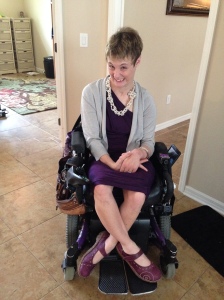Reading
Genesis 29:15-28
Devotion
Peace be with you!
Every family has its own version of drama – the uncle who drinks too much, the aunt who has a brain injury and cannot live alone, the nephew who does drugs, the niece who is abused by her significant other, and [whatever “it” is] your family members do that hurts the family unit as the result of the broken world. No family is perfect or has it all together — even those families who appear to be perfect.
Isaac and Rebekah send Jacob (Genesis 27:41-45) to Haran (Genesis 28:10) to find a wife among his kinsman. Upon his arrival, Jacob falls in love with Rachel, Laban’s younger daughter (Genesis 29:17, 20, 30). Laban says Jacob can marry Rachel if he works for seven years for him, which he agrees to do (Genesis 29:18-20). However, after the seven years, Laban tricks Jacob into marrying his older daughter Leah (Genesis 29:23). This trickery is reminiscent of Jacob’s earlier trickery of his brother Esau. Since the reason Jacob is in Haran is because he conned Esau, it is fitting Jacob get a dose of his own medicine. When Jacob confronts him, Laban explains that cultural customs mean he must marry off Leah before Rachel may be wed (Genesis 29:26). Once again, Jacob is faced with laws governing siblingsEven today, siblings are subjected to unspoken rules. These take different forms, depending on the family and culture. Siblings are supposed to be alike and to be there for each other. Brothers are supposed to protect their sisters, while sisters cook the meals. Younger siblings are supposed to follow the example of acheivement their older siblings set. Younger siblings get tired of teachers suggesting they need to be more like their older siblings. My younger brother still complains about having to be in my shadow growing up. Jacob still wants to marry Rachel and agrees to work for another seven years under Laban in order to do so (Genesis 29:27). Upon the completion of the seven years, Jacob marries Rachel and loves her a lot more than Leah (Genesis 29:28-30).
God enables Leah to have four sons named Reuben, Simeon, Levi, and Judah (Genesis 29:31-35). At first, Leah thinks Jacob will grow to love her since she gives him sons, but he continues to love Rachel more. Therefore, Leah turns to the Lord and praises him for giving her sons (Genesis 29:35). Rachel is barren and grows jealous of Leah, tired of living in the shadow of her sister’s fertility. In order to give Jacob a child, Rachel gives him her maid, Bilhah, who has two sons, Dan and Naphtali, and Rachel praises God for answering her prayers (Genesis 30:1-8). Leah does not have any children for awhile, and once again feels like she is living in Rachel’s shadow. Leah gives Jacob her maid, Zilpah, who has two sons who are named Gad and Asher (Genesis 30:9-13). Then she herself had two more sons, Issachar and Zebulun, and a daughter, Dinah (Genesis 30:17-21). Finally, God answers Rachel’s prayers and gives her a son whom she names Joseph (Genesis 30:22-24).
For several years, Leah and Rachel compete for Jacob’s love in a childbearing race for sons. Leah lives in Rachel’s shadow because Jacob loves the younger sister more. Rachel lives in Leah’s shadow because she gives Jacob more sons. This battle between the two sisters is passed along to the sons, who side with their mothers. The drama will continue to unfold as the sons grow older, and Leah’s sons sell Joseph to Ishmaelite traders (Genesis 37:27-28) for being Jacob’s favorite. The vicious cycle does not end until the brothers go to Egypt during a famine and a finally powerful Joseph forgives them.
Families are messy businesses. Someone is always the black sheep. Someone always feels like they are living in someone else’s shadow. It is impossible to make everyone in a family happy at the same time. Somehow, family, even the one you create with friends or colleagues, is the focus of your life – the one constant in your life. The Lord finds a way to use even your worst intentions for the betterment of the world. You may not understand what the Lord has planned, but he always has your best interests in mind. Trust in the Lord, and he will lift you up from this broken world.
Thanks be to God!
Dear Heavenly Father, Thank you for our family members who are always there for us. Help us as family member to work together to make the world a better place. Guide us to show mercy and grace to those who hurt us. Lead us to be examples of your love to others. Thank you for the power of forgiveness. Amen.
Reflective Questions
Please answer the following reflective questions in the comments below. Please agree to disagree and be respectful to each other. (If you have not already done so, please also take a moment, to sign the behavior covenant by commenting on it.) You can answer as many questions as you would like.
- Whose shadow do you live in?
- How have you extended forgiveness to others? When has it been extended to you?











